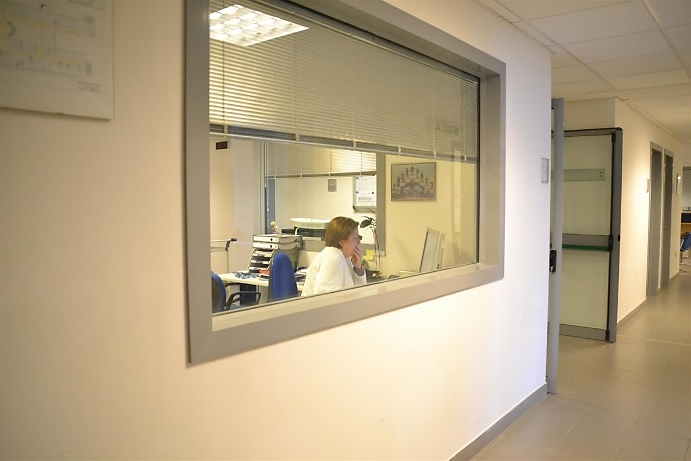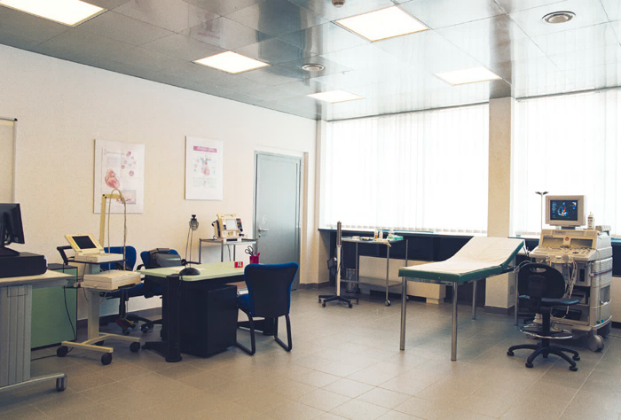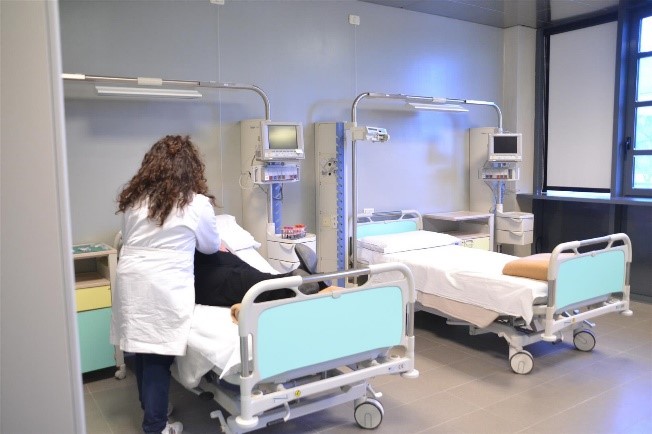CRC
The Clinical Research Center (CRC) is the CAST facility dedicated exclusively to clinical studies. It is equipped with outpatient spaces, inpatient rooms, and day hospital areas. The CRC has 4 rooms, with a total of 8 beds, and 2 medical offices for outpatient activities.
The CRC is equipped with a laboratory for the collection and processing of biological samples, an independent in-house pharmacy, and an archive.
Additionally, the CRC has a range of equipment necessary for conducting clinical studies. Preventive maintenance of this equipment is regularly performed according to the maintenance plan issued by the Management.
Available Equipment at the CRC:
- Sphygmomanometers
- Weighing scales
- Equipment for managing medical emergencies (e.g., defibrillators and aspirators)
- Centralized multiparametric monitoring systems
- Electrocardiograph
- Infusion pumps
- YSI analyzers
- Centrifuge
- Refrigerators for the storage of experimental drugs
- Freezers for sample storage
Clinical Tests and Exams Available at the CRC:
- Electrocardiogram (ECG)
- Euglycemic hyperinsulinemic clamp technique
For clinical trials requiring additional diagnostic and therapeutic equipment, the CRC has agreements with external services.
Clinical-Pharmacological Studies
The CRC has all the necessary local, national, and international approvals and certifications required to conduct Phase 1, 2, 3, and 4 drug registration trials. Over the past four years, more than 50 international, multicenter, randomized, and controlled studies have been conducted. Most of the studies conducted at the CRC focused on drugs for the treatment of neurological diseases (e.g., Parkinson's disease, multiple sclerosis, Alzheimer's disease), dermatological diseases (e.g., atopic dermatitis, psoriasis), and drugs for the treatment of diabetes mellitus, obesity, and related cardiovascular and renal diseases.
In addition to sponsored registration studies, the CRC also conducts independent clinical studies primarily focused on diabetes and the pathophysiology of cardiovascular diseases, neurodegenerative diseases, and cognitive impairment.
 Beatrice GulloCoordinatrice Infermieristica Contact |
||
 Flavia MinoiaCoordinatrice Infermieristica Contact |
 Michelina Di PaoloFarmacista Contact |
 Barbara LovecchioArchivista Contact |






